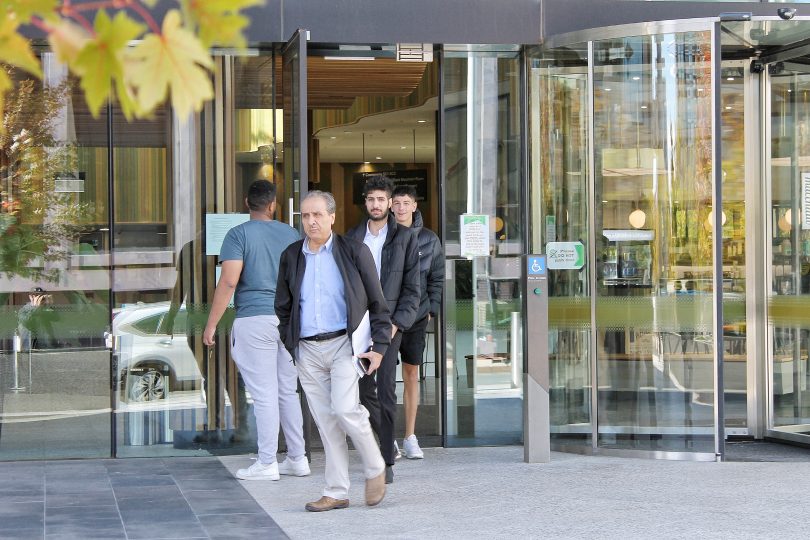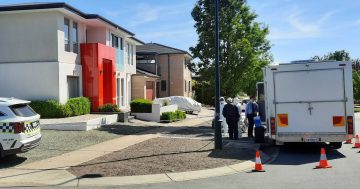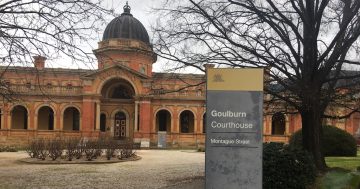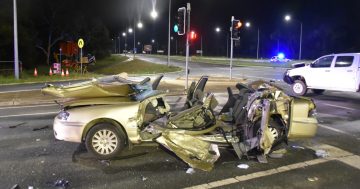
Ameen Hamdan exits the courts after his case was committed for trial on Monday. Photo: Albert McKnight.
The young man accused of causing the death of 16-year-old Alexis Saaghy in a car crash has been handed another charge before he was committed to stand trial in the Territory’s higher court.
The new charge alleges he also caused grievous bodily harm.
ACT Policing has accused Ameen Hamdan of being the driver of the Nissan Navara that hit a tree on Longmore Crescent in Wanniassa early in the morning of 31 October 2020.
Mr Hamdan, then an 18-year-old P-plater, and two passengers were transported to hospital with minor injuries.
But Alexis, the front-seat passenger, was taken to hospital with life-threatening injuries. She died on 3 November.
The case was last mentioned in court in September 2021 when it became apparent a lengthy adjournment would occur due to delays in assessing whether or not he was fit to enter a plea.
But the then-19-year-old did indicate not guilty pleas to charges of culpable driving causing death and contravening the conditions of a driver’s licence, meaning court documents could be prepared for his case.

Alexis Saaghy is remembered as a selfless and compassionate soul. Photo: Supplied.
On Monday (17 January), the ACT Magistrates Court heard Mr Hamdan was also being charged with a count of culpable driving causing grievous bodily harm, to which he also indicated a plea of not guilty.
Legal Aid’s Mr Rutzou sought another adjournment on behalf of Mr Hamdan. He said the earliest appointment they could make for neurological testing as part of their fitness to plead investigation was in February.
A lengthy discussion followed as the adjournment was opposed by prosecutor Soraya Saikal-Skea who said it had almost been a year since the case first appeared in court as it had been adjourned several times.
She said many people came before the courts with mental impairments, but the legislation said they were still presumed fit to plead because, if it didn’t, there would be the same scenario as there was with Mr Hamdan’s case over and over again.
She said a report from June 2021 by a consultant neurologist said Mr Hamdan had a mild brain injury as well as issues with memory loss and reasoning.

Ameen Hamdan (second from right) leaves the ACT Courts in 2021. Photo: Albert McKnight.
The report also appeared to contradict itself at times, she said, and it did not appear that extensive testing had been performed for it.
Magistrate Glenn Theakston said a later report from a specialist had found issues with short-term memory as well, but also that the executive function of Mr Hamdan’s brain was relatively normal.
He said he wanted the matter to be sent to the Supreme Court as soon as possible.
“It doesn’t serve the defendant, his family nor the victim’s family to have this matter prolonged,” he said.
He committed the case to the Supreme Court for trial with it first appearing in the higher court on 3 February.






















Bill Stone money for hospitals does not come from tne same pocket as money for transport. Funds are… View